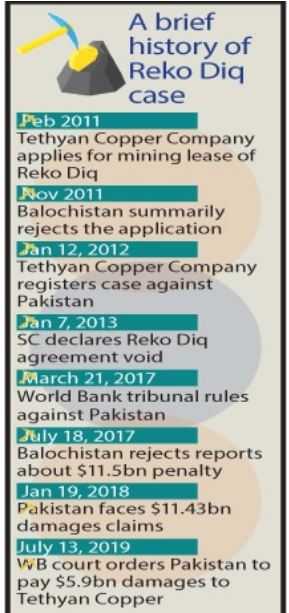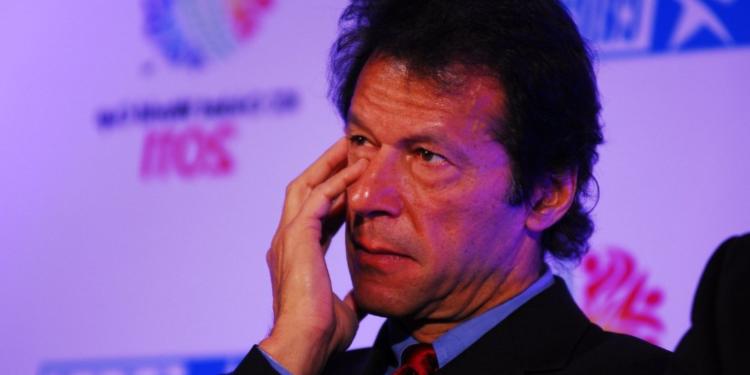The Reko Diq Mine in Reko Diq town has become a test case for Pakistan on its commitment to abide by International law and norms of global organizations. In the latest development in the case, International Centre for Settlement of Investment Disputes (ICSID) which happens to be one of the five organizations of World Bank Group has slapped 5.976 billion dollars fine on Pakistan with 4.08 billion dollars in penalty and 1.87 billion dollars in interest.
The amount of penalty charged on the debt-ridden country is equal to the International Monetary Fund’s bailout package. The International tribunal rendered its judgment on Friday which is an auspicious day in the Islamic country but the ruling by the court is obviously not favorable for the country.
Tethyan Copper Company (TCC) which is a joint venture between Chile’s Antofagasta Plc (ANTO.L) and Canada’s Barrick Gold (ABX.TO), the Chilean miner discovered a deposit of gold and mineral wealth in Chagai District on the border of Afghanistan, Iran and Pakistan.
The deposit discovered a decade ago was among the world’s biggest copper and gold deposits. The first excavation in the Reko Diq region yielded 200kg of gold and 1,700 tonnes of copper. Ore reserve of more than 5.9 billion tonnes was estimated and this sent a warning signal to the government of Pakistan that it made a bad deal.
TCC had invested 220 million dollars by 2011 when the Pakistani government banned all subsequent mining activities and refused to grant the mining lease. The International Court ruled against Pakistan in 2017 but the compensation was decided on Friday.
Previously, TCC lost the case in Pakistani Supreme Court in 2013 when the Reko Diq agreement was declared void by the apex court of the Islamic country. As per a report by Pakistani English daily Dawn, “Klaus Sachs of Germany headed the tribunal while Stanimir A. Alexandrov of Bulgaria represented the claimants and Leonard Hoffmann of United Kingdom represented Pakistan.”’
Some other players involved or want a stake in exploitation of Reko Diq mine are China, Saudi Arabia, and Pakistani armed forces.

According to satellite imagery published by ThePrint, Chinese state-owned companies are exploiting the region with the tacit approval of Pakistan. In the early 1990s, Pakistan asked M-9 and M-11 missiles which China delivered in 1993. In return, Chinese state-owned Metallurgical Corporation of China (MCC) got the resource-rich Chagai region on a 20-year lease. The company found gold and copper deposits in two places named Sandak and Reko Diq. According to analysts, the deal is very shady and grants tacit approval to carry out illegal mining activities in the region.
The former finance minister of Pakistan Asad Umar said that the officials and investors from Saudi Arabia enquired about investment in Reko Diq mines. Another official confirmed the ongoing talks with the Saudi government over investment in the area.
In March this year, Reuters reported that the Pakistani military has shown a keen interest in developing the copper and gold mine. “Pakistan’s military is taking a key role in the development of one of the world’s biggest untapped copper and gold deposits, which is currently stalled by a multi-billion dollar legal wrangle with foreign mining firms,” said the report by Reuters.
The Reko Diq mine has become a major bone of contention between Pakistani establishment and global investors who want their rights to be protected. If Pakistan does not abide by court rulings, the global investors who pulled billions of dollars in the last few months could get further alienated. This would further hurt the already debt-ridden economy of Pakistan.

























